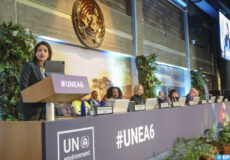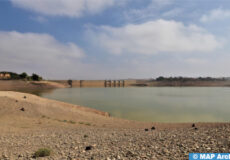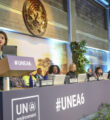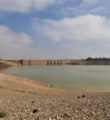Desertification and Drought Destabilize Well-Being of 3.2 bln People -UN
United Nations (New York) – Land degradation from climate change and the expansion of agriculture, cities and infrastructure “undermines the well-being of 3.2 billion people”, the UN chief said recently in his message for World Day to Combat Desertification and Drought.
“Humanity is waging a relentless, self-destructive war on nature. Biodiversity is declining, greenhouse gas concentrations are rising, and our pollution can be found from the remotest islands to the highest peaks”, Secretary-General António Guterres noted.
Land degradation is harming biodiversity and enabling infectious diseases, such as COVID-19, to emerge, he explained.
“Restoring degraded land would remove carbon from the atmosphere…help vulnerable communities adapt to climate change…and it could generate an extra $1.4 trillion dollars in agricultural production each year”, Guterres said.
To meet an ever-growing demand for food, raw materials, roads and homes, humans have altered nearly three quarters of the earth’s surface, beyond land that is permanently frozen.
“This year marks the start of the UN Decade on Ecosystem Restoration”, recalled the Secretary-General, calling on everyone to “make healthy land central to all our planning”.
Audrey Azoulay, Director-General of the Educational, Scientific and Cultural Organization (UNESCO) pointed to the “dramatic impact” that desertification is having on “our common environmental heritages”, posing a “considerable threat” to the health of communities, global peace and sustainable development.
Desertification and drought also increase water scarcity, at a time when two billion people still lack access to safe drinking water, said Azoulay, adding that “over three billion may have to confront a similar situation by 2050”.
“Together, let us build a sustainable future so that the fertile lands of the past do not become deserts emptied of their populations and their biodiversity”, she concluded.













